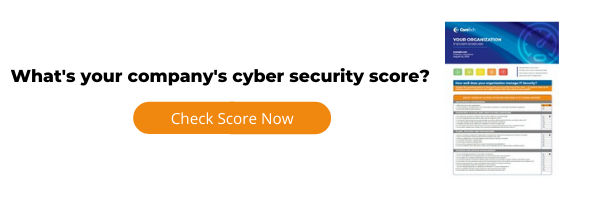 In today’s world, you can never be too careful with your organization’s cyber security. And if your employees are accessing the internet, a firewall needs to be a key part of your cyber security strategy.
In today’s world, you can never be too careful with your organization’s cyber security. And if your employees are accessing the internet, a firewall needs to be a key part of your cyber security strategy.
Firewall tools are not only useful for securing digital assets and protecting hardware, but can also be used to block employees from accessing prohibited sites and to filter web traffic. Certain firewall configurations can even tip you off if a data breach or intrusion occurs, which means you can resolve issues quickly to prevent or stop cyber security attacks. That’s important, since a rapid response time can significantly minimize damage in the event of a data breach or other cyber security event.
Let’s take a look at this crucial piece of equipment, how it works, and why a firewall is such an important part of business cyber security.
What Does a Firewall Do?
Most of us have heard the term “firewall” before. In fact, you probably know that it’s used to protect a business’s network from cyber security attacks. But many business owners do not realize just how crucial — or versatile — a firewall can be.
At its most basic, a firewall is a configurable device with software that blocks unwanted internet traffic from coming into your network. Just as a physical firewall protects an area from fire, a digital firewall acts as a barrier between your internal network and malicious traffic. It inspects traffic coming in and out of your network, using a set of rules to determine whether or not that traffic should be allowed.
Your organization can also take advantage of more advanced firewall configurations and add-ons to prevent employee access to certain websites, log network usage, protect files, and secure your network when team members are accessing it remotely. Next, we’ll review some of those features and take an in-depth look at the benefits of firewall protection.
Top Six Benefits of Firewall Protection
A firewall is a useful tool to prevent and manage cyber security events, data loss, and unwanted network use. Here are the top six reasons you need one.
- Cyber Security Attack Prevention. Cyber security is certainly the top reason to use a firewall. Firewalls can block malicious programs from being installed on users’ computers. They can be used as part of a multi-layer cyber security strategy to protect against distributed denial of service (DDoS) attacks, where a hacker floods your network with unwanted traffic. In some cases, they can also stop intrusions and block unauthorized network use.
- Threat Detection. A managed service provider (MSP) will configure your firewall to send an alert if something in your network seems amiss. For instance, we can add features that will scan outgoing network traffic for sensitive data such as social security numbers or credit card information. That way, we can spring into action and begin securing data and minimizing the damage from a potential data breach if we detect suspicious traffic.
- Compliance. If you work in healthcare, finance, or law, your organization is required to adhere to guidelines governing digital use, such as HIPAA or PCI. These types of industry regulations typically require a firewall. An MSP, like CoreTech, can help you understand what you need to meet various industry standards and how to configure firewalls so that your business stays compliant.
- Blocking Prohibited Sites. Although it’s nearly impossible to run a business without the internet, the web is also home to plenty of distracting and unsafe websites. Our team will program firewall settings to block sites you don’t want employees visiting, like social media platforms or explicit content.
- Data Loss Prevention. We can program firewall settings that allow it to “look inside” files downloaded from, or moved in, your network. That way we can spot files that may have been accidentally deleted by internal users or moved by malicious outsiders.
- Securing Remote or Mobile Workers. Many modern businesses have workers trying to access internal networks outside of the office. However, once users go outside of your ISP, it can be much harder to protect your network. A firewall can help by securing connections between external users and your internal network. This way, other users on a shared or unsecure internet connection can’t interrupt or listen in on your traffic.
While there are many benefits of firewall protection, these features are only useful if they're installed and managed properly. Our team at CoreTech can help by configuring firewalls to minimize vulnerabilities and ensure that they’re set up correctly. We can also customize settings to give you exactly what you need from your firewall protection. And we can help you build a broader cyber security strategy to protect every part of your network. Contact us today to learn more!
Additional Resources:
- What is a Managed Firewall? And Why Hire an IT Provider to Purchase It?
- 5 Reasons to Outsource Your Business Cyber Security

